I am trying to send data from a vector over a TCP socket. I'm working with a vector that I fill with values from 0 to 4999, and then send it to the socket.
Client side, I'm receiving the data into a vector, then I copy its data to another vector until I received all the data from the server.
The issue I'm facing is that when I receive my data, sometimes I will get all of it, and sometimes I will only receive the correct data from 0 to 1625 and then I get trash data until the end (please see the image below). I even received for example from 0 to 2600 correct data, then from 2601 to 3500 it's trash and finally from 3501 to 4999 it's correct again.

(left column is line number and right column is the data).
This is the server side :
vector<double> values2;
for(int i=0; i<5000; i++)
values2.push_back(i);
skt.sendmsg(&values2[0], values2.size()*sizeof(double));
The function sendmsg :
void Socket::sendmsg(const void *buf, size_t len){
int bytes=-1;
bytes = send(m_csock, buf, len, MSG_CONFIRM);
cout << "Bytes sent: " << bytes << endl;
}
Client side :
vector<double> final;
vector<double> msgrcvd(4096);
do{
bytes += recv(sock, &msgrcvd[0], msgrcvd.size()*sizeof(double), 0);
cout << "Bytes received: " << bytes << endl;
//Get rid of the trailing zeros
while(!msgrcvd.empty() && msgrcvd[msgrcvd.size() - 1] == 0){
msgrcvd.pop_back();
}
//Insert buffer content into final vector
final.insert(final.end(), msgrcvd.begin(), msgrcvd.end());
}while(bytes < sizeof(double)*5000);
//Write the received data in a txt file
for(int i=0; i<final.size(); i++)
myfile << final[i] << endl;
myfile.close();
The outputs of the bytes are correct, the server outputs 40 000 when sending the data and the client also outputs 40 000 when receiving the data.
Removing the trailing zeros and then inserting the content of the buffer into a new vector is not very efficient, but I don't think it's the issue. If you have any clues on how to make it more efficient, it would be great!
I don't really know if the issue is when I send the data or when I receive it, and also I don't really get why sometimes (rarely), I get all the data.